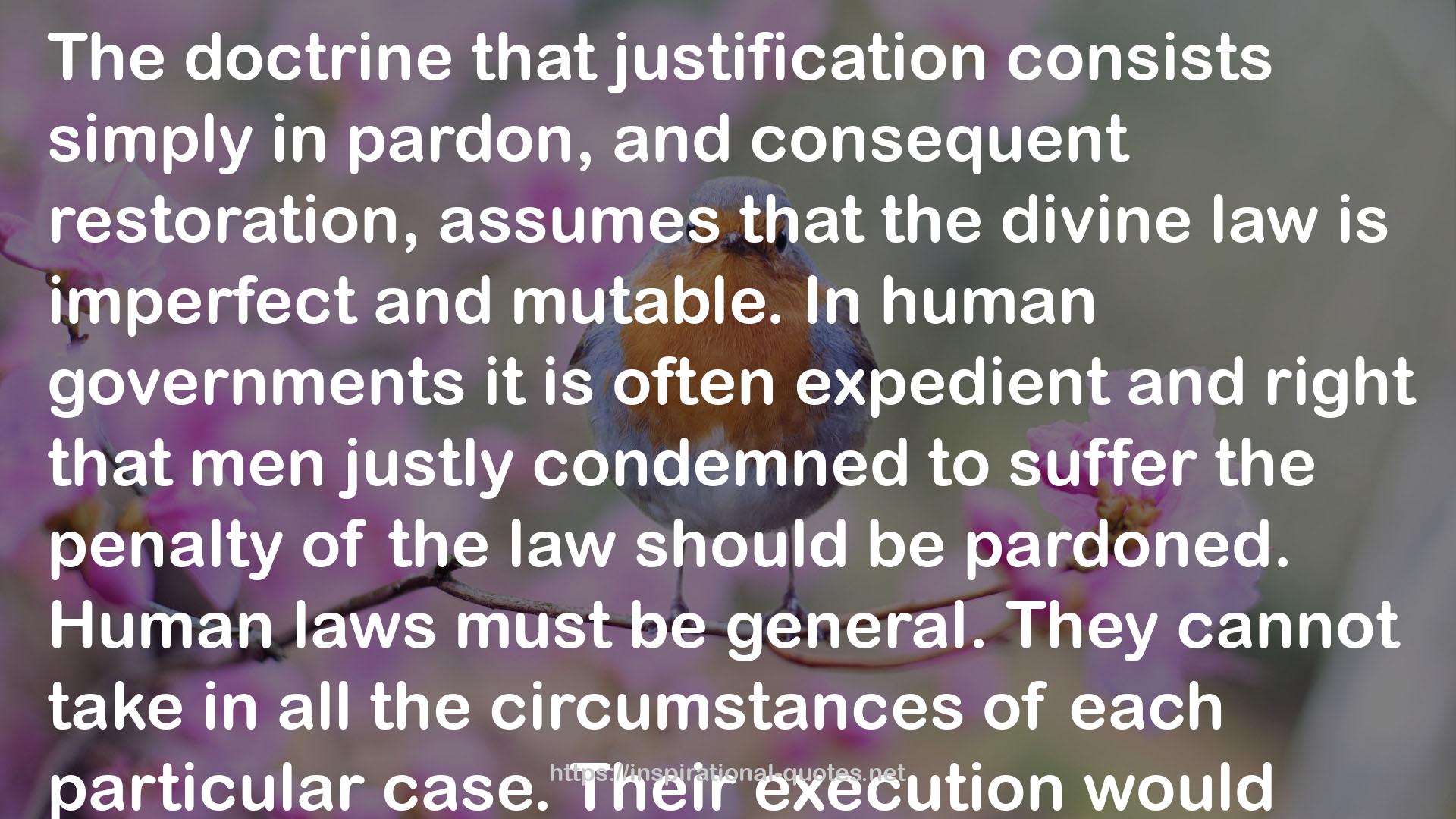" The doctrine that justification consists simply in pardon, and consequent restoration, assumes that the divine law is imperfect and mutable. In human governments it is often expedient and right that men justly condemned to suffer the penalty of the law should be pardoned. Human laws must be general. They cannot take in all the circumstances of each particular case. Their execution would often work hardship or injustice. Human judgments may therefore often be set aside. It is not so with the divine law. The law of the Lord is perfect. And being perfect it cannot be disregarded. It demands nothing which ought not to be demanded. It threatens nothing which ought not to be inflicted. 126It is in fact its own executioner. Sin is death. (Rom. vii. 6.) The justice of God makes punishment as inseparable from sin, as life is from holiness. The penalty of the law is immutable, and as little capable of being set aside as the precept. Accordingly the Scriptures everywhere teach that in the justification of the sinner there is no relaxation of the penalty. There is no setting aside, or disregarding the demands of the law. We are delivered from the law, not by its abrogation, but by its execution. (Gal. ii. 19.) We are freed from the law by the body of Christ. (Rom. vii. 4.) Christ having taken our places bore our sins in his own body on the tree. (1 Pet. ii. 24.) The handwriting which was against us, he took out of the way, nailing it to his cross. (Col. ii. 14.) We are therefore not under the law, but under grace. (Rom. vi. 14.) Such representations are inconsistent with the theory which supposes that the law may be dispensed with; that the restoration of sinners to the favour and fellowship of God, requires no satisfaction to its demands; that the believer is pardoned and restored to fellowship with God, just as a thief or forger is pardoned and restored to his civil rights by the executive in human governments. This is against the Scriptures. God is just in justifying the sinner. He acts according to justice. "
― Charles Hodge
Image for Quotes

